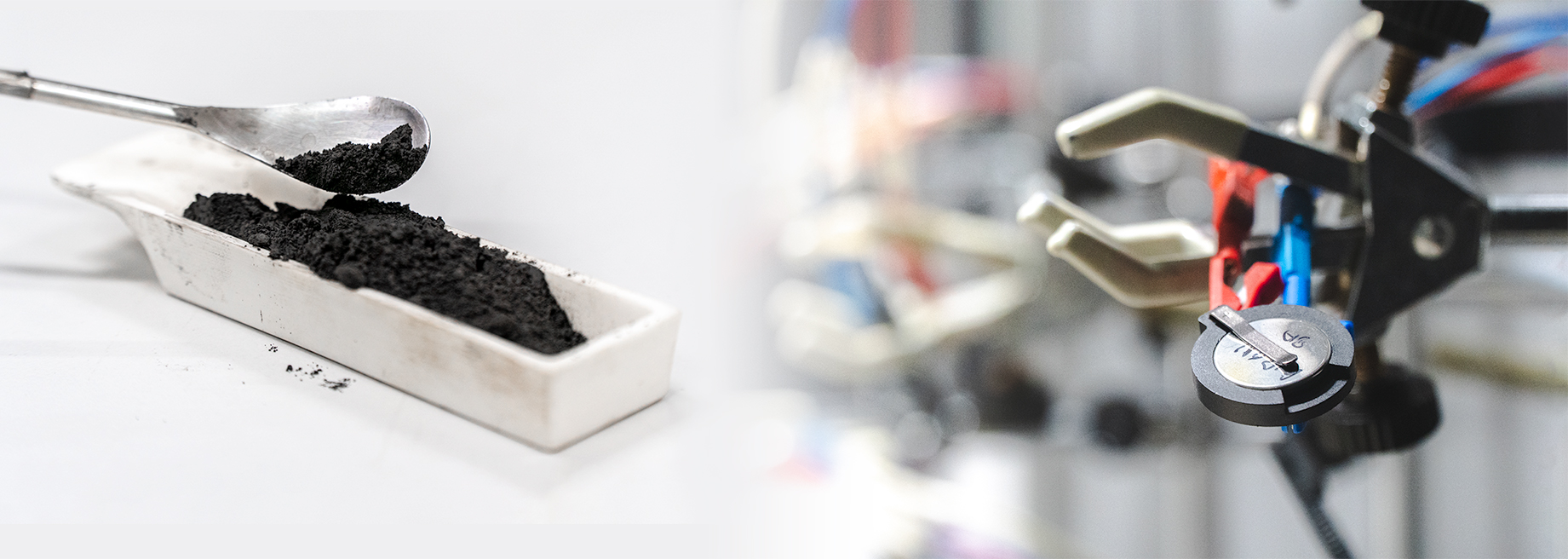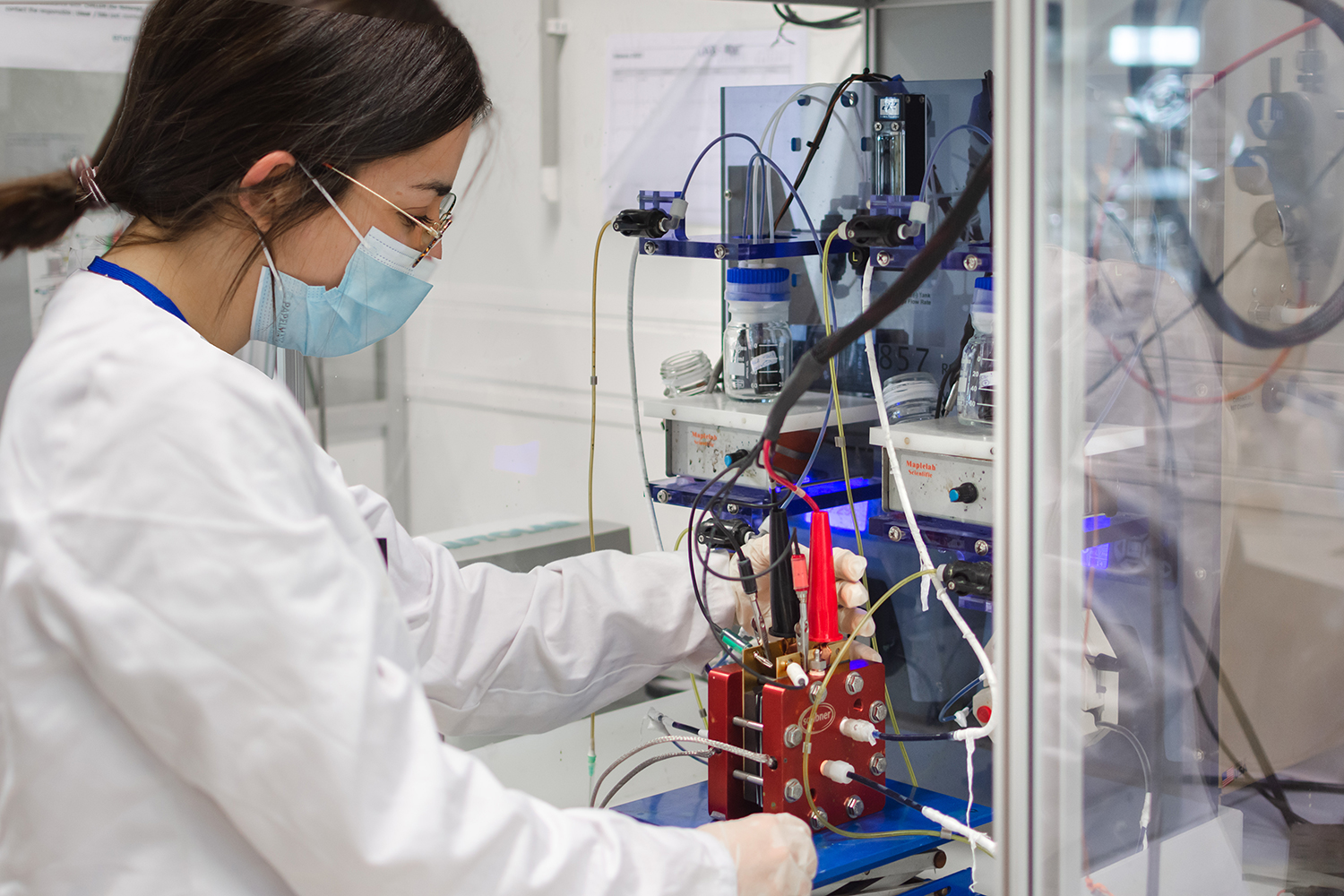CIC energiGUNE, the Basque research center of reference in battery storage, thermal energy solutions, and hydrogen technologies, and member of the Basque Research & Technology Alliance-BRTA, has presented the advances accomplished in the development of an organic electrolyte for the redox flow batteries, which will allow to substitute materials that are more toxic and more difficult to obtain in Europe –such as vanadium- for components that are more affordable, of a higher performance and, above all, more sustainable. The announcement has been made within the frame of the seminar about the “Crucial role of redox flow batteries in the energetic transition”, celebrated on the 2nd and 3rd of March in Pilsen (Czech Republic), as part of the European project HIGREEW that the Basque center leads.
“The vanadium is a material that is scarce and of a volatile price, subjected to geopolitical conditions”, has assured Eduardo Sánchez, researcher from CIC energiGUNE who has presented the work to the HIGREEW workshop participants. “Our research has consisted on developing organic materials and integrating them in the electrolyte, in order to present an alternative that is sustainable, more economical and of a higher performance for the redox flow batteries”.
The task of CIC energiGUNE has included the identification of the organic materials with better properties for their performance in batteries, after having carried out an initial proposal with different options of active materials. This way, the proposed modifications in the facilities of the Basque center at the Scientific and Technological Park of Álava have allowed to obtain batteries with a high energy density and better performance in terms of power, which will allow to reach the cost objectives required by the European Union (0,05 €/kWh/cycle).
During the presentation, Sánchez has described the development plan for high-efficiency electrolytes in neutral pH through the fulfillment of formulation adjustments, which have allowed to obtain electrolytes with conductivities of up to 0,3 S/cm, low viscosities and that are able to operate in a wide range of temperatures (0-45ºC). Likewise, he has carried out a review of all the research work that has been done, since the development and synthesis of active materials until the formulation of the electrolytes and their scaling.
Finally, the researcher from CIC energiGUNE has put his focus on the results of the performance in cell and the requisites for the scaling of the electrolyte. This way, the results of the costs have been announced for the formulation of the prototype of the project that is to be implemented, which will be installed in La Plana (Zaragoza), in the facilities of Siemens Gamesa Renewable Energies.
HIGREEW and the energetic transition
The European project HIGREEW, which is lead by CIC energiGUNE, has the objective of developing a new low-cost organic electrolyte with an aqueous base. The consortium is formed by 10 reference point entities in the fields of materials, storage systems and renewable energies: Gamesa Electric, Autonomous University of Madrid, Centre National de la Recherche Scientifique, C-Tech Innovation Ltd, University of West Bohemia New Technologies – Research Centre, Pinflow energy storage, Uniresearch, Siemens Gamesa Renewable Energy Innovation and Technology and Fraunhofer Institute for Chemical Technology. Likewise, HIGREEW counts with funding from the Horizon 2020 program from the European Commission of 3.78M€ for its execution between November 2019 and February 2023.
The conference celebrated in Pilsen has allowed to access information about redox flow batteries, energy storage and its crucial role in the energetic transition, with a special focal point in organic electrolytes. Technical aspects of this type of batteries and they have discussed the comparison with other alternatives such as natural gas hydrogen or Li-ion technology.





